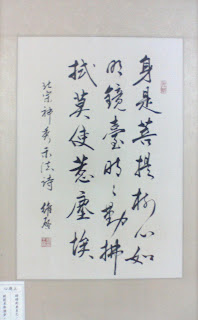A body of water needs not be deep; it would be ensouled, if a dragon makes it its resting whereabouts.
This hut of mine is a humble one, but I make it virtuously fragrant in repute.
The green moss creeping on the stepping stones and the verdure in the courtyard peeing through the screen do tell the presence of spring. Here could be heard the table-talks and laughters of renowned scholars, but the rough and gross come not hither their wares to sell. Here plain table-heptachord could be plucked and golden classics read the worldly cares to quell. But there are without riotous strings and pipes to confuse the ears, and tedious official documents to ring quietude's knell.
Zhuge's recluse cottage at Nanyang and Yang Xiong's hermit arbour in West Shu, — according to Confucius, wherefore could either one of them be branded as a humble cell?
Liu Yuxi Poems- Chinese Tang poetry- Dynasty writer & philosopher
Liu Yuxi:(772–842), was a Tang-Dynasty writer and philosopher. Liu Yuxi was a gifted person with eagerness to learn. Over 800 Liu Yuxi poems have survived to this day. Liu Yuxi poems covered a wide range of subjects, mainly reflecting people’s lives and folk customs. Some of the poems lashed out at the influential officials who ordered the suppression of Yangzhou Reform through a fable or tale. Liu Yuxi poems addressed a broad range of social phenomena. In addition, Liu Yuxi 40-plus folk-song style ci-poems have been handed down.







